The Eurovision Song Contest is in town! Vienna has reinvented itself as the city that builds bridges between the whole of Europe and this year even Australia! A special guest to celebrate the 60 years and reward the biggest fan base outside Europe. It was fun to visit the Eurovision village at the City Hall and see how these bridges were being celebrated and even have a glimpse of some of the contestants.
This has been the role of the European Song Contest since its foundation 60 years ago, in 1955. Its conception ten years after the end of the Second World War brought a recently created European Broadcast Union together to create something unique. This union of national broadcasters initially came up with the concept of a friendly competition between seven countries that would be broadcast at the same time across Europe. Not an easy task before the creation of satellite TV.
The idea was to show each country’s national identity but at the same time create a feeling of solidarity and understanding between nations. The critics often say the quality of the songs leaves something to be desired and I would agree but there is a higher purpose for the existence of the song contest.
Beyond the cheesiness, quirkiness and even weirdness, the Eurovision Song Contest has played many roles in bringing Europe closer. It showed that in spite of Europe’s different ethnicities, cultures and languages, it could come united and have fun together.
Politics have been present from the beginning. There was always talk of how friendships influenced the votes but it went beyond that.
In 1974 Portugal participated in the 12th Eurovision Song Contest with a song called “E depois do Adeus” sung by our Paulo de Carvalho. We received few points but it was a song about a lost love that became the symbol of a revolution. It was the song chosen by the Army captains who led the military coup against the Estado Novo, due to its popularity at the time for having participated in the Eurovision Song Contest. They knew it would not raise suspicions when played it on the radio. It was almost midnight when my mother woke up and could not get back to sleep. She decided to switch on the radio, This song started and then was repeated several times. She thought how odd. This was the signal for the troops to get ready and end more than 40 years of dictatorship. Our revolution also known as the Carnation Revolution on April 25 1974, became an example for all of Europe. Almost no shots were fired, instead there were celebrations on the streets. The people cheered the insurgents and offered them carnations. Many were put in the muzzles of the riffles.
Recently in 2004, Ukraine won the Eurovision with the song Wild Dances. Dressed like a warrior, Rusiana became the symbol of what was to come. That year she helped lead the Ukraine’s Orange Revolution and later in 2013 she became one of the leaders of the Euromaidan Movement which fought hard for a Ukraine closer to Europe and denounced the strong grip still exercised by Russia. We all know what happened in the meantime and last year regrettably, Russia’s Eurovision contestants were often booed on stage due to political events.
Besides politics the Eurovision Song Contest has also become a symbol of tolerance and acceptance of minority groups. The gay community has been often represented in diverse ways. An example is of course last year’s winner Conchita Wurst but in 1998 Israel won with Dana, a transgender. This year Finland was represented by a punk band whose members had different degrees of learning disabilities. This is what the song contest is all about.
In this difficult period we are living now in Europe, with economical crisis, the threat of terrorism and the raise of extreme right groups, the Eurovision Song Contest is still a breath of fresh air. It is an excuse to mend and built bridges. A few days when all is forgotten and people can have fun, even in the rain.
For me it has brought back memories of my childhood when my mother would cook dinner early so that we could all sit by the TV and watch it. Six brothers and sisters and my parents. We would all laugh, argue, make fun and vote between ourselves, trying to guess who would be the winner that year. There was a time when there were still national juries, a diverse group of people representative of the society chosen by the national broadcaster. They would be locked in a room and make an evaluation of the songs. They would have a file with the translation of all the lyrics since all the contestants would sing in their own mother tongue. We were so proud when my older brother was chosen one year to be part of the national jury. He took the role very seriously and we had a lot of fun with it. I still believe contestants should sing in their own language, this year only six did that. Every year there would be one less sister or brother to celebrate with as we all started to leave and get married. As the youngest, the baby of the family, I felt sad to see them go one by one until it was my turn to leave. Now we each watch it in our homes, with our families but the memories remain.
I really don’t know who will win tonight or if it will be the best song. But tonight along with 180 million europeans, I’m going to watch it with my daughter and husband. I told her she could stay up a little longer and we could eat popcorn while we decide who are our favorites this year and who should win. It is nice to be able to share family traditions.
May the spirit of the festival be kept alive for many years to come, rain or shine, today torrential rain here in Vienna!

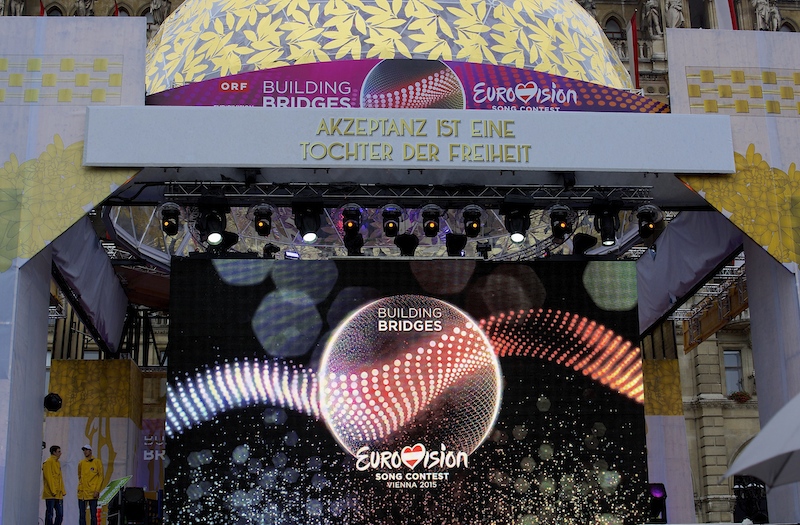
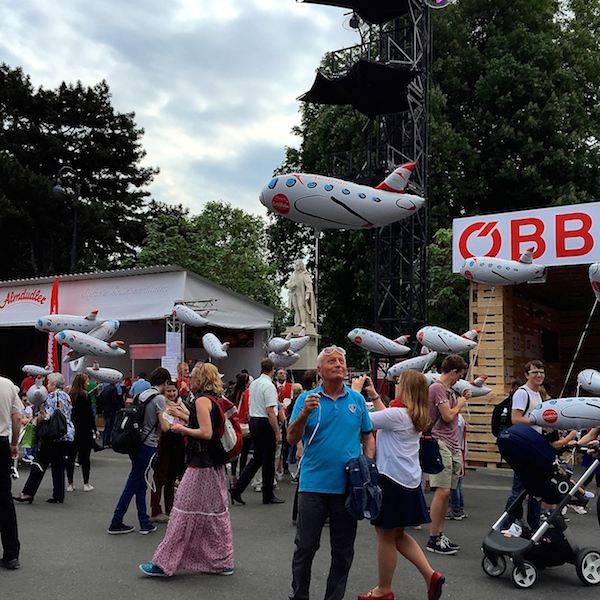
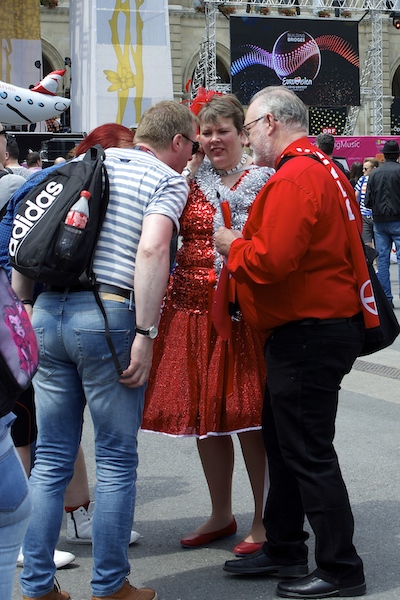
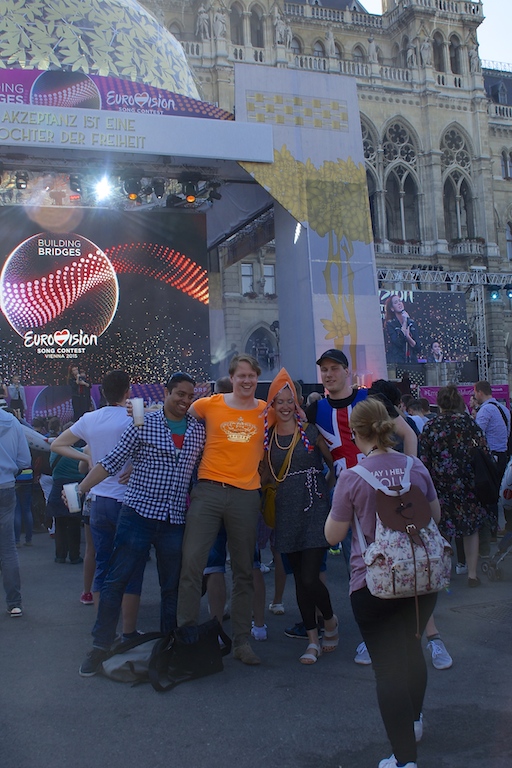
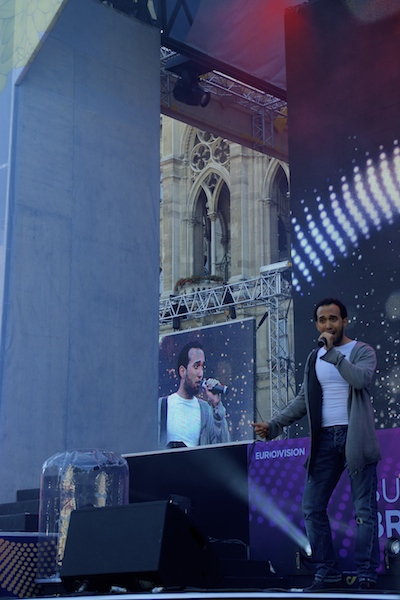
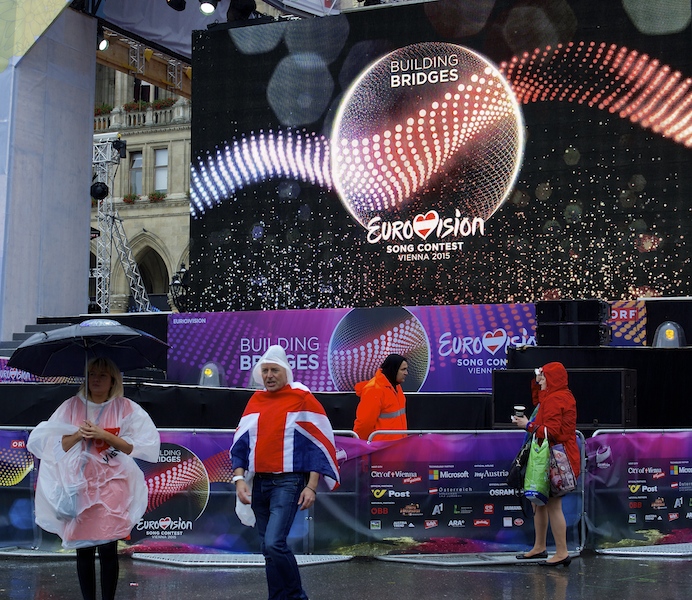
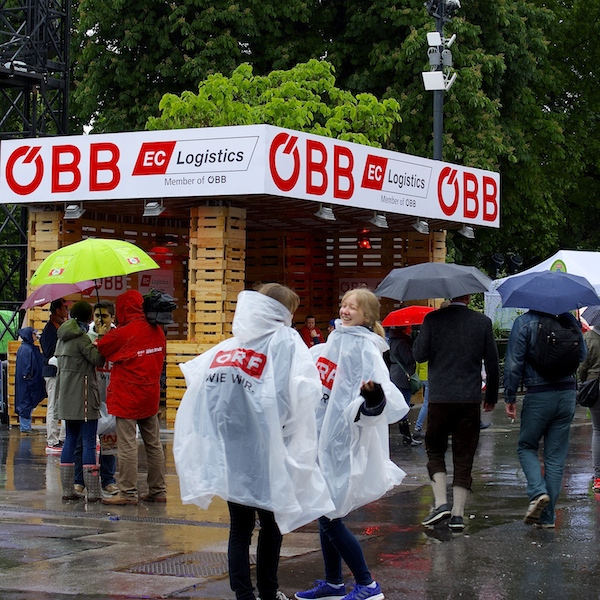
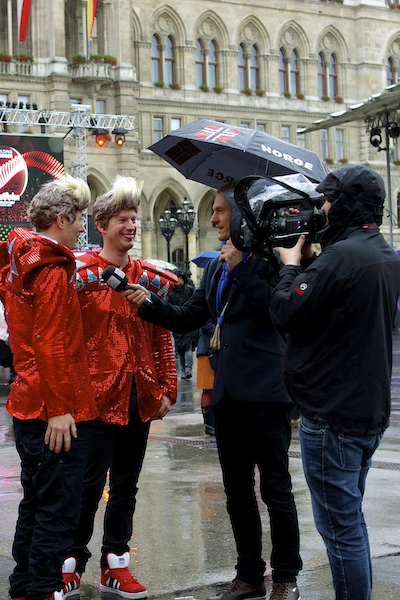

How lovely and interesting, never heard about the role the Portuguese song played in the revolution.. your article should be published in newspapers. Please continue!!!
Thank you so much Ado, many people don’t know about that. I’m glad you liked it and thank you again for the encouragement.
Querida María_
Que increíble historia nos has contado, el significado de esa canción E depois do Adeus para el pueblo de Portugal. También lo que significo en la unión de tu familia.-
Nosotros lo vimos anoche, yo nunca lo había visto y me encantó, realmente un espectáculo tanto artístico como de unión Europea.
Felicidades y me imagino a mi chiquilina comiendo palomitas y comentando y tal vez bailando como es ella.
Si querida Carmen, es una historia que muchos no conocen. Que bien que lo viran. La chiquilina estuvo feliz comiendo palomitas e si, bailando mucho!